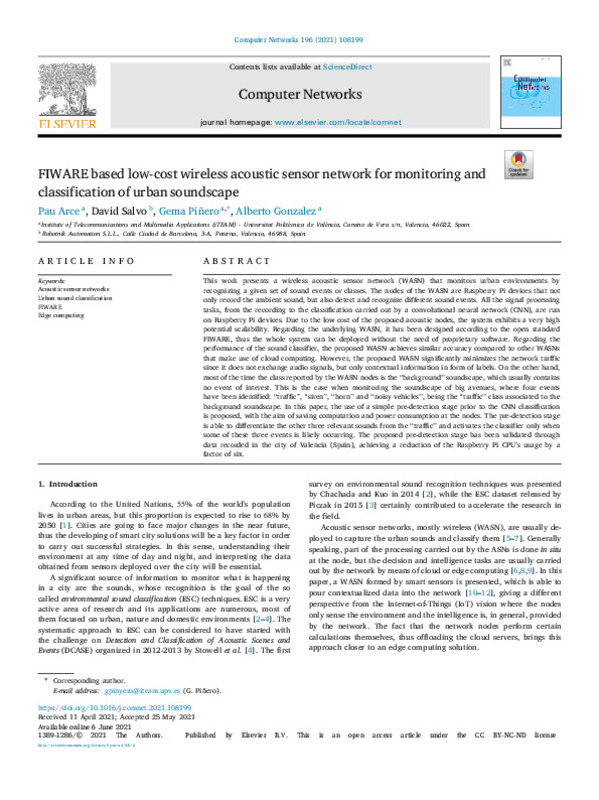JavaScript is disabled for your browser. Some features of this site may not work without it.
Buscar en RiuNet
Listar
Mi cuenta
Estadísticas
Ayuda RiuNet
Admin. UPV
FIWARE based low-cost wireless acoustic sensor network for monitoring and classification of urban soundscape
Mostrar el registro completo del ítem
Arce Vila, P.; Salvo, D.; Piñero, G.; Gonzalez, A. (2021). FIWARE based low-cost wireless acoustic sensor network for monitoring and classification of urban soundscape. Computer Networks. 196:1-10. https://doi.org/10.1016/j.comnet.2021.108199
Por favor, use este identificador para citar o enlazar este ítem: http://hdl.handle.net/10251/184215
Ficheros en el ítem
Metadatos del ítem
| Título: | FIWARE based low-cost wireless acoustic sensor network for monitoring and classification of urban soundscape | |
| Autor: | Salvo, David | |
| Entidad UPV: |
|
|
| Fecha difusión: |
|
|
| Resumen: |
[EN] This work presents a wireless acoustic sensor network (WASN) that monitors urban environments by recognizing a given set of sound events or classes. The nodes of the WASN are Raspberry Pi devices that not only record ...[+]
|
|
| Palabras clave: |
|
|
| Derechos de uso: | Reconocimiento - No comercial - Sin obra derivada (by-nc-nd) | |
| Fuente: |
|
|
| DOI: |
|
|
| Editorial: |
|
|
| Versión del editor: | https://doi.org/10.1016/j.comnet.2021.108199 | |
| Código del Proyecto: |
|
|
| Agradecimientos: |
This work has been partially supported by European Commission (EC) through GA 774477 -MAtchUP, EC together with Spanish Government through RTI2018-098085-B-C41 (MINECO/FEDER) and Generalitat Valenciana through PROMETEO/2019/109. ...[+]
|
|
| Tipo: |
|









